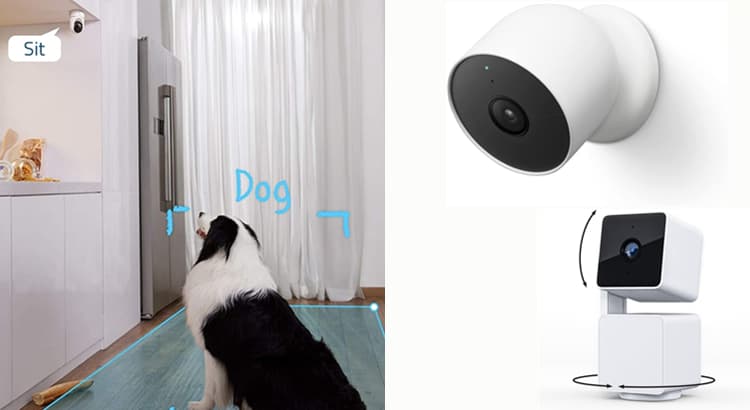Howdy, legal eagles and security aficionados! In the ever-evolving landscape of home surveillance, the question often arises: “Are surveillance cameras with audio illegal?”
Delving into the intricacies of audio recording in surveillance cameras requires us to unravel the legal tapestry that governs privacy, security, and the fine line between the two.
In this comprehensive exploration, we’ll dissect the legal nuances surrounding surveillance cameras equipped with audio features, shedding light on the factors that influence their legality and the ethical considerations that come into play.
Understanding the Legal Landscape
Jurisdiction Matters!
The legality of surveillance cameras with audio hinges on jurisdictional differences. Laws regarding audio recording vary not only from country to country but also from state to state within the United States. It’s crucial for users to familiarize themselves with the laws applicable in their specific location to ensure compliance.
Consent as a Key Factor
To Record or Not to Record?
One of the primary considerations for the legality of surveillance cameras with audio is the requirement for consent. In many jurisdictions, individuals have the right to privacy, especially concerning audio recordings. Obtaining consent from all parties involved in the recorded conversation is often a legal prerequisite.
One-Party vs. Two-Party Consent States
Legal Distinctions!
In the United States, the concept of consent is categorized into one-party consent states and two-party consent states. In one-party consent states, only one party involved in the conversation needs to be aware of and consent to the recording. In two-party consent states, all parties must be informed and agree to the recording for it to be legally permissible.
Legal Implications of Unauthorized Audio Recording
Tread Carefully!
Unauthorized audio recording, especially in two-party consent states where consent is mandatory, can have severe legal consequences. Penalties for violating these laws may include fines, civil lawsuits, and even criminal charges. Users must tread carefully to avoid unintentional legal pitfalls.
Workplace Considerations
Employer-Employee Dynamics!
In workplace settings, the legality of surveillance cameras with audio may be influenced by employer-employee dynamics. Employers may have the right to install surveillance cameras for security purposes, but the inclusion of audio recording may require explicit consent from employees due to privacy considerations.
Privacy Concerns
Balancing Security and Privacy!
The inclusion of audio recording in surveillance cameras raises legitimate privacy concerns. Striking a balance between security needs and individual privacy rights is essential. Users must be mindful of the ethical implications and ensure that surveillance practices align with both legal requirements and respect for privacy.
Mitigating Privacy Risks
Transparency and Notification!
To mitigate privacy risks, users can adopt transparent practices. Posting clear and visible notices indicating the presence of audio recording devices can serve as a proactive measure. This transparency not only fosters awareness but also contributes to a more ethical surveillance environment.
Home Security vs. Public Spaces
Private vs. Public Domain!
When it comes to home security, the legal landscape may differ from public spaces. Homeowners generally have more leeway in implementing security measures within the confines of their private property. However, it’s essential to remain cognizant of potential legal implications, especially if the surveillance extends beyond the property boundaries.
Federal Wiretapping Laws
Federal Considerations!
In the United States, federal wiretapping laws also play a role in the legality of audio recording. These laws govern the interception of wire, oral, or electronic communications and may impose additional restrictions on the use of surveillance cameras with audio features.
Technological Advances and Future Legalities
Adapting to Change!
As technology advances, so too do the legal considerations surrounding surveillance cameras. The emergence of new features, such as facial recognition and advanced audio capabilities, prompts lawmakers to reevaluate and adapt existing regulations.
Staying informed about evolving legalities is crucial for users navigating the ever-changing landscape of surveillance technology.
Conclusion
In conclusion, the legality of surveillance cameras with audio is a multifaceted issue that necessitates a nuanced understanding of privacy laws and consent requirements.
Users must navigate the legal soundscape carefully, considering jurisdictional variations, workplace dynamics, and the overarching balance between security needs and individual privacy rights.
Whether you’re a homeowner seeking to enhance security or a business owner implementing surveillance measures, it’s imperative to conduct thorough research on the legal implications of audio recording in your specific location.
By staying informed, respecting privacy boundaries, and adopting transparent practices, users can strike a legal chord in their security practices, ensuring a harmonious coexistence between technological advancements and legal compliance.
So, as you delve into the realm of surveillance cameras with audio features, remember to stay vigilant, stay legal, and strike the right balance between securing your space and respecting the rights of those within it.
Happy navigating, legal guardians of the security landscape!





